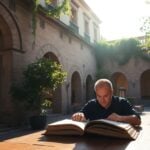Deadline: 27 November 2024
The British Academy is seeking applications for the Global Innovation Fellowship to provide opportunities to UK-based early- and mid-career researchers from across the humanities and social sciences to develop their skills, networks and careers in the creative and cultural, public, private and policy sectors to address challenges that require innovative approaches and solutions.
Through the Global Innovation Fellowships, researchers in the SHAPE community will be supported to create new and deeper links beyond academia, so enabling knowledge mobilisation and translation, as well as individual skills development.
The aim is to have a mutually beneficial partnership between the fellowship award holder and Carnegie with each able to take advantage of fresh perspectives and expand their networks and reach. It will enable the award holder to strengthen and create new links across policy and academia, enabling knowledge mobilisation and translation, and the opportunity to develop new approaches and solutions to policy challenges through providing a different perspective. Applications are invited in any of the following five areas:
- Sustainability, Climate and Geopolitics.
- Technology and International Affairs.
- Democracy, Conflict & Governance.
- Global Order and Institutions.
- Nuclear Policy.
- Political Economy and Trade.
Funding Information
- Starting period of award: Global Innovation Fellowships are expected to commence by September 2025. An earlier start date of March or April 2025 may be possible, in this case the applicant will need to explain how they will plan and manage their relocation on this faster timeline.
- Level of award: The Academy is offering up to two one-year fellowships hosted in Carnegie’s offices in the USA (Washington DC or California). These are offered as awards for up to £150,000 for 12 months in duration (with Full Economic Costing at 80%).
- Eligible costs will be funded under the following headings:
- Directly incurred salary costs. The award can be used to support the employing institution’s salary costs of the Applicant for the duration of the award
- Estates and indirect costs. The award can include the employing institution’s estate and indirect costs incurred as a result of direct staff costs.
- Relocation and visa costs. The Academy will pay for reasonable relocation costs including one return travel to the USA before the commencement of work at the Carnegie Endowment for International Peace, travel to commence the fellowship in the USA and travel to return to the UK at the end of the fellowship. Any required visa costs will also be covered by the award.
- Accommodation and top-up contribution. The Academy will pay up to £2,000 per month for accommodation in the USA and a top-up contribution of up to £500 per month for the award holder.
Eligibility Criteria
- Eligible applicants must be ordinarily resident in the United Kingdom with a current long-term appointment that will continue for at least as long as the period of the award. You must be an early-career or mid-career researcher based at an institution in the UK (e.g., a Higher Education Institution [HEI] or Independent Research Organisation [IRO]), from disciplines within the Humanities and Social Sciences that is listed as an approving-organisation in the British Academy’s grant management system, Flexi-Grant. This institution will be issued the Terms and Conditions of the award, if successful.
- All applicants should strongly consider the potential for engagement between academic and non-academic environments and the value this would bring to their career and the value they can bring to the work and purpose of the Carnegie Endowment for International Peace.
- Applicants may not hold more than one British Academy award of a comparable nature at any one time.
- Postgraduate students are not eligible to apply for grant support from the Academy, and Applicants are asked to confirm in the personal details section(s) that they are not currently working towards a PhD, nor awaiting the outcome of a viva voce examination, nor awaiting the acceptance of any corrections required by the examiners.
For more information, visit The British Academy.


























